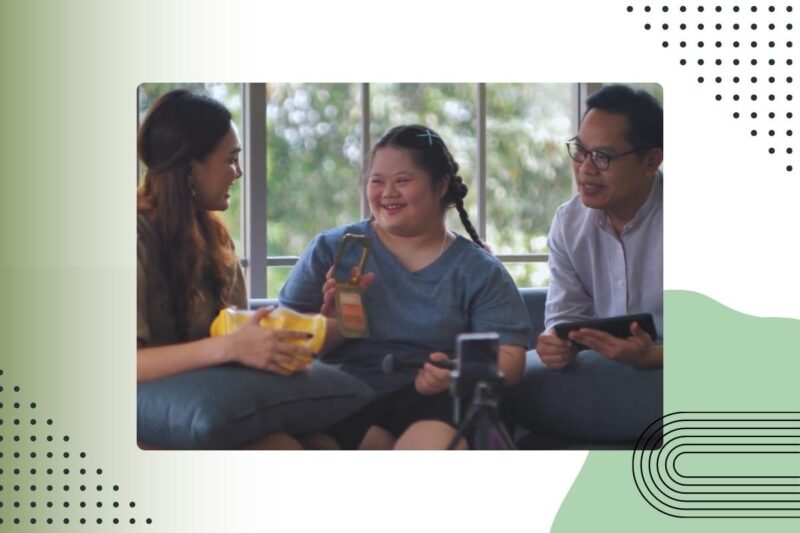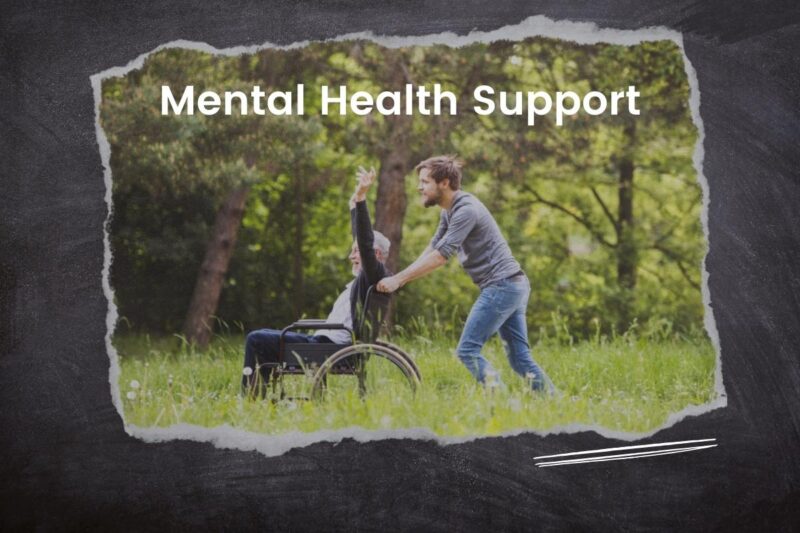In the pursuit of inclusivity, independence, and enriched lives for adults with disabilities, day programs play a pivotal role. These programs have a profound impact on enhancing the quality of life for those who participate, from social enrichment to skill-building and beyond. Let’s delve deeper into the benefits of day programs for adults with disabilities.
1. Enhancing Life Skills
Each individual has unique skills and abilities that can be nurtured and expanded. Day programs specifically designed for adults with disabilities can help to enhance these life skills. Day programs often have activities focused on developing essential life skills.
These could range from teaching simple cooking or doing laundry to budgeting or using public transportation. Participants engage in these activities in a safe, supportive environment, which boosts their confidence and independence.
Fostering Independence
Independence is a crucial aspect of life for adults with disabilities, and day programs provide a platform for them to gain and practice these skills. Through activities designed to promote self-reliance, such as meal preparation, cleaning, and using public transport, participants become more confident in their abilities.
This newfound independence doesn’t just stay in the day program—it often transfers to the home environment, fostering a greater sense of self-sufficiency.
Promoting Personal Development
Apart from fostering independence, day programs also promote personal development. These programs often include activities such as art and craft, music, or gardening, allowing participants to discover and develop new interests.
Besides being fun, these activities also help in enhancing motor skills, improving cognitive abilities, and fostering a sense of achievement.
2. Social Opportunities

Day programs for adults with disabilities offer numerous opportunities for social interactions. Social opportunities not only alleviate feelings of isolation but also improve overall mental health. These programs offer a chance for adults with disabilities to interact with their peers.
These interactions may be casual conversations during lunch or more structured, like group activities or games. This can lead to the formation of friendships, boosting their sense of belonging and community.
Building Friendships
Building friendships is an essential part of life that enhances emotional well-being. Day programs foster an environment where these relationships can thrive. Participants have the chance to engage with others who have similar experiences, forming bonds based on mutual understanding and empathy.
These friendships often extend beyond the day program, offering a source of social support and companionship.
Nurturing a Sense of Community
Day programs nurture a sense of community among participants, which can be particularly beneficial for those who might otherwise feel isolated. Regular interactions and shared experiences within the program lead to a strong sense of community. This feeling of belonging can significantly improve mental health and self-esteem, making participants feel valued and accepted.
3. Physical Health and Wellness

Physical health and wellness are vital aspects of life that day programs can significantly enhance. These programs often incorporate activities designed to promote physical health, from exercise classes to nature walks and more.
Regular physical activity not only improves overall health but also reduces the risk of various diseases. Moreover, engaging in physical activities can significantly improve mood, helping to combat depression and anxiety.
Encouraging Regular Exercise
Day programs often include regular exercise in their daily schedule. These may take the form of simple stretching exercises, group games, or more structured fitness classes. The goal is not just to get the participants moving but also to help them enjoy the process, making physical activity a regular part of their lifestyle.
Promoting Healthy Eating
Promoting healthy eating is another critical aspect of day programs. They often provide meals that are balanced and nutritious, educating participants about the importance of good nutrition. Moreover, some programs may include cooking activities, where participants learn to prepare healthy meals, promoting a balanced diet.
4. Mental Health Support

Mental health support is a significant benefit that day programs offer. These programs provide a supportive environment where participants can express their feelings and learn coping mechanisms.
Mental health professionals often visit day programs to hold group therapy sessions or one-on-one counseling. This allows individuals to work through their feelings in a safe, supportive environment, enhancing their overall mental well-being.
Access to Professional Support
Professional mental health support can make a significant difference in the lives of adults with disabilities. Day programs often provide access to psychologists, counselors, or social workers who can offer assistance tailored to the individual’s needs. This professional support can help them navigate life’s challenges more effectively.
Therapeutic Activities
Day programs also incorporate therapeutic activities that help in stress management and emotional regulation. These could include yoga, mindfulness meditation, art therapy, or music therapy. Engaging in these activities can help participants manage their emotions better, reduce stress levels, and improve overall mental well-being.
5. Structured Routine

A structured routine can provide comfort and security for adults with disabilities. Day programs offer such a structure, with scheduled activities that provide predictability. Having a routine not only helps participants manage their time effectively but also reduces anxiety associated with the unknown. In addition, a structured routine can instill a sense of purpose, improving their overall well-being.
Time Management Skills
Day programs can help participants improve their time management skills. These programs run on a fixed schedule with a set time for each activity, encouraging participants to be punctual and organized. In the process, they learn to manage their time more effectively, a skill that can be beneficial in their day-to-day life.
Sense of Purpose
Having a structured routine can instill a sense of purpose in participants. Engaging in meaningful activities and having a routine to follow can give them something to look forward to each day. This sense of purpose can have a profound positive impact on their mental well-being.
FAQs

How Do Day Programs Benefit the Mental and Emotional Well-Being of Adults with Disabilities?
They have a positive impact on the mental and emotional well-being of adults with disabilities. They allow these individuals to build friendships, enjoy social activities, and remain involved in their communities. This enhances their self-esteem, independence, confidence, and social skills.
Are Day Programs Affordable?
Yes, in most cases, they cost far less than nursing homes, senior living communities, or in-home care. There are also several different ways to pay for them, including Medicaid waivers, funding through the Administrations of Aging and Veterans Administrations, long-term care insurance, and other subsidy programs for low-income people.
What Life Skills Can Adults with Disabilities Develop in Day Programs?
These programs cover a variety of real-world life skills, including budgeting and financial management, independent living skills, social interaction skills, problem-solving skills, employment skills training, and computer skills training.
How Do Day Programs Provide Relief for Caregivers?
They provide much-needed respite for family caregivers. When their loved one participates in day programming, the caregiver can run errands, travel, visit friends, and treat themselves to things they love. Some adult day centers even provide caregiver support programs.
What Activities Are Offered in Day Programs?
These programs offer a variety of activities to cater to different passions and interests. These can include arts (e.g., music, painting, drama, or photography), current events, health and wellness, health services, independent living skills, personal safety awareness, rehabilitation therapy, science, and volunteerism.
Who Can Participate in Day Programs?
Nearly everyone with a disability can participate. While some programs are specifically geared towards seniors or people with dementia, the majority are open to anyone, including those with developmental disabilities, Parkinson’s disease, cerebral palsy, and many more.
What Are the Overall Benefits of Day Programs to The Well-Being of Adults with Disabilities?
Day programs can greatly improve one’s mental and physical health. Participating in social activities and events can do wonders for a person’s overall well-being. Plus, when an individual finds a new talent or hobby, their confidence grows exponentially!
How Do Day Programs Help Adults with Disabilities Connect with The Community?
Adult day programs often bring participants into the community to volunteer, connect with businesses, and socialize with new people. This allows adults to go out of their comfort zone in a safe manner, helping them build independence.
Are Day Programs Safe for Adults with Disabilities?
Yes, safety is always of the utmost importance. Adult day services provide a safe environment for individuals to learn, grow, and be themselves. Adults with disabilities are able to appropriately explore their interests and talents with support by their side.
Final Words
Day programs offer numerous benefits for adults with disabilities, from enhancing life skills and promoting social interactions to providing mental health support and a structured routine. They play a pivotal role in fostering independence, nurturing personal growth, and improving the overall quality of life.
With the right support and resources, adults with disabilities can lead fulfilling, enriched lives. Remember, everyone deserves the opportunity to thrive, and day programs are one effective way to provide this opportunity to adults with disabilities.






